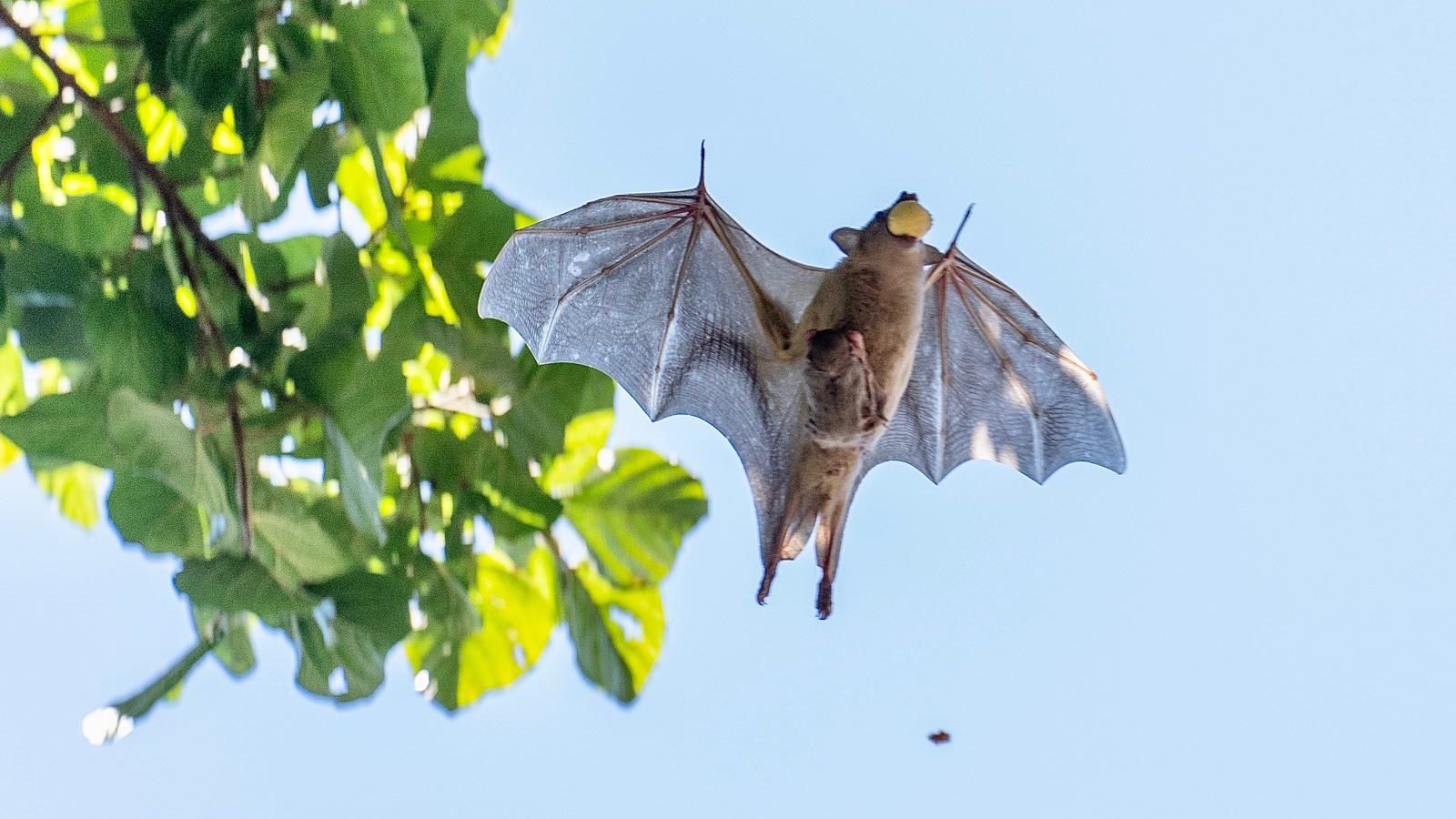Fruit Bats Practice Social Distancing, Too
Tel Aviv University study that shows sick bats self-isolate could have far-reaching implications for origins of COVID-19
Humans are not the only ones to go into isolation at the sign of illness. A new study from Tel Aviv University has shown that sick bats also use social distancing, possibly to prevent the spread of mass contagion in their colonies.
The study, which was recently published in the Annals of the New York Academy of Science, showed that bats stay away from their communities when they fall ill, probably as a means for recovery but also potentially to protect others. It was conducted by Tel Aviv University postdoctoral researcher Dr. Kelsey Moreno and doctoral candidate Maya Weinberg from the laboratory of Prof. Yossi Yovel, who heads the Sagol School of Neuroscience and who is a researcher in zoology.
In order to observe bat behavior, researchers monitored two colonies of Egyptian fruit bats: one living in captivity in an enclosure and the other living in its natural environment.
“We saw the same behavior in both groups,” Weinberg told The Media Line. “When a bat feels unwell it takes a step back from the cluster. It’s important to remember that bats, especially fruit bats, are extremely social animals.”
For Weinberg, a doctor of veterinary medicine specializing in bats for the past 12 years, it was important to not cause any real harm to the bats. Researchers relied on a bacteria-like protein rather than a real virus to conduct the study, which they then injected into several bats in each colony. The injection of the protein simulated an immune response that generated symptoms of illness, such as a high fever and fatigue. The “sick” bats were then closely watched and their behavior was tracked using a GPS.
With COVID-19, we asked people to maintain social distancing even when they only suspected that they may be carriers of the virus. We needed to implement a financial penalty to force people to stay at home, whereas bats knew from the outset to keep their distance when they felt unwell
Researchers found that the bats knew to keep away from the rest of the colony when faced with a potentially infectious disease. The “sick” bats in the colony in captivity chose to leave the cluster of their own volition and maintain distance; similarly, the “sick” bats in the second group – those living in their natural environment – moved away from others and also remained in their cave for two successive nights without going outside to seek food or water.
“We are the first to show that sick bats simply stay in,” Yovel told The Media Line. “Sick animals tend to be reserved and shy so when we interact with them it is usually due to our activities. This is not new, but we tend to forget it.”
According to Weinberg, the findings surprised researchers, since it is unusual for such a highly social animal to actively isolate itself. Other animals living in the wild mainly prefer to hide an illness so as to not appear vulnerable, fall prey to predators or be abandoned by their packs.
Even humans, she pointed out, do not necessarily maintain social distancing so willingly.
“With COVID-19, we asked people to maintain social distancing even when they only suspected that they may be carriers of the virus,” Weinberg said. “We needed to implement a financial penalty to force people to stay at home, whereas bats knew from the outset to keep their distance when they felt unwell.”
Since the pandemic first erupted last year, bats have been blamed as the likely source of the deadly virus that has claimed millions of lives. They also have gained an unfortunate reputation of being reservoirs of numerous diseases and thus being dangerous to humans.
Weinberg argued that these assumptions are incorrect.
“They are very rarely sick with infectious diseases,” she said.
“The coronavirus that bats carry cannot be transmitted to humans,” Weinberg continued. “The virus we find in horseshoe bats is not the same one that has paralyzed half the planet. It simply did not come from bats.”
Though the origins of COVID-19 virus remain a mystery, scientists have not as of yet managed to find it in any bats or pangolins living in the wild. Some have speculated that a scientist in China who was studying coronaviruses in Wuhan may have leaked the strain, thereby causing a worldwide outbreak. The Wuhan Institute of Virology is notably located near the outbreak’s earliest known epicenter.

Prof. Yossi Yovel, who heads the Bat Lab at Tel Aviv University. (Tel Aviv University)
While Weinberg does not believe that COVID-19 was engineered in a lab, her study shows that a sick bat would have been unlikely to easily come into contact with humans, unless of course humans actively searched for it.
“[Coronaviruses] are not something that scientists can find in urban areas so they go deep into nature and seek out new strains that bats and other animals can cope with,” she said. “It was not a virus that was engineered in the lab, but it appears that there was a safety problem and it leaked out.”
China has repeatedly denied suggestions that COVID-19 originated in a laboratory in Wuhan or that its scientists were somehow involved in a leak, accidental or otherwise. The theory nevertheless continues to be widely debated among political leaders and scientists around the globe.
“I think we don’t know yet what happened,” Yovel said. “We know the virus was probably not directly transferred from a bat to a human but rather through another host; but more investigation is needed.”


